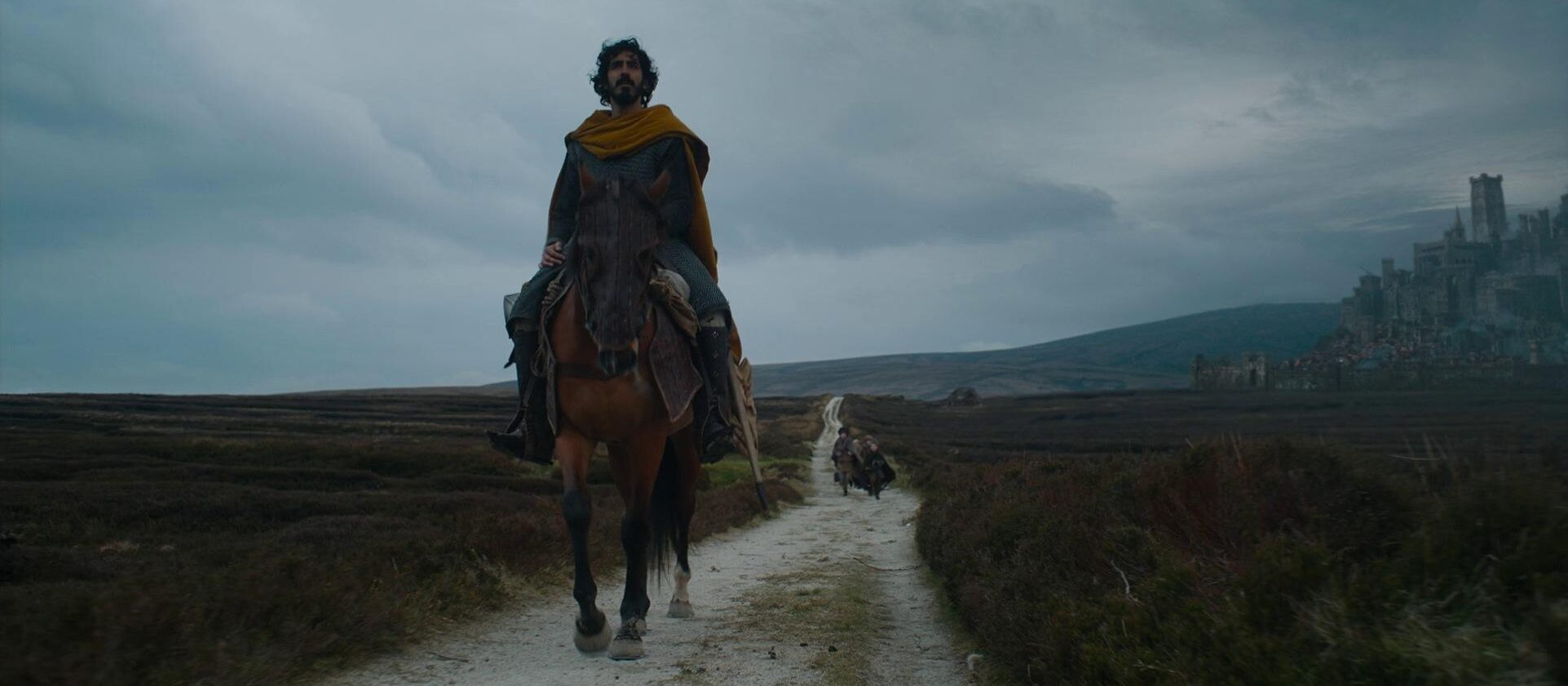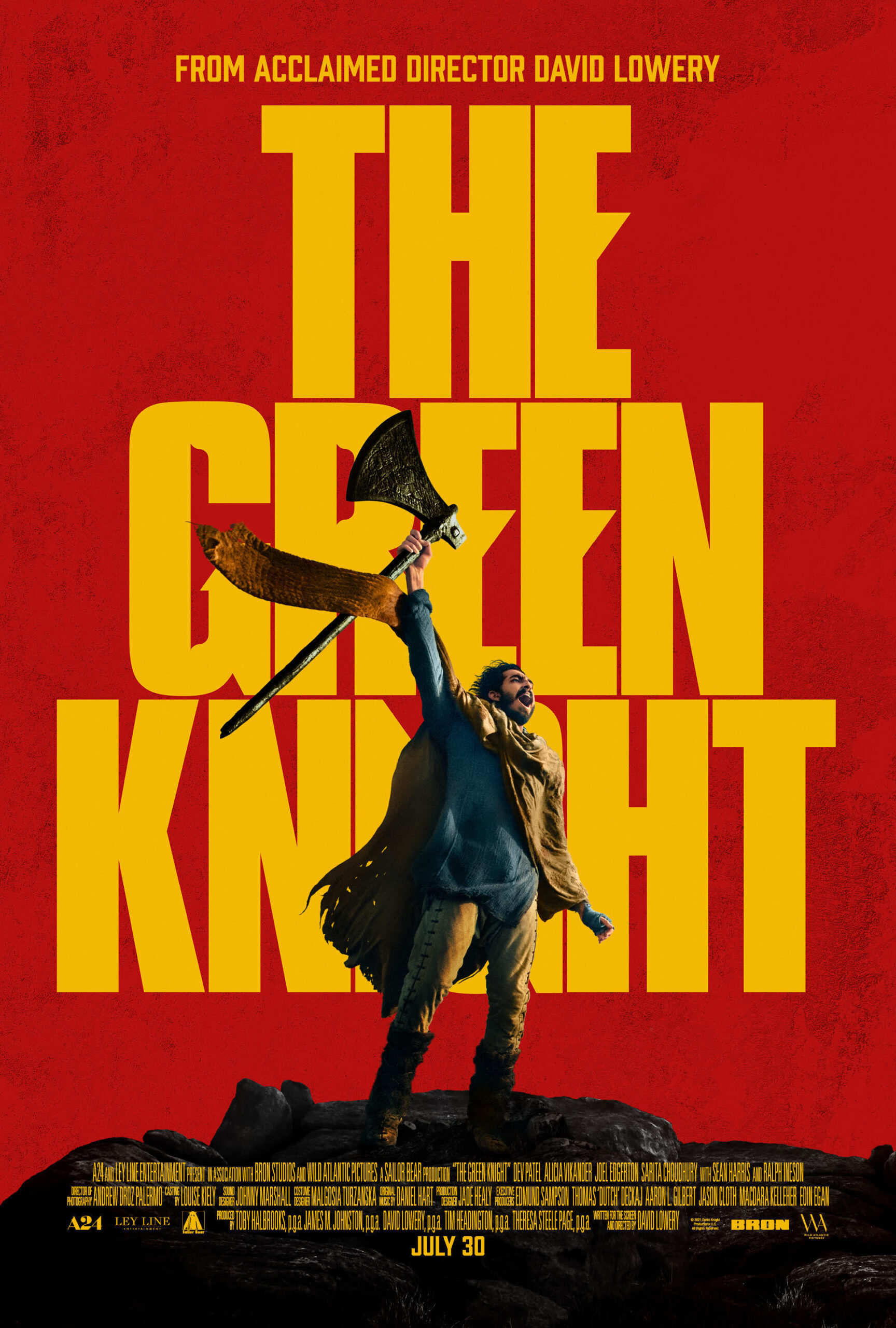

“Why greatness? Why is goodness not enough?”
Who would have thought that a 14th century knight would suffer from the thoroughly modern psychological disorder known as imposter syndrome?
A revisionist take on an old, anonymously-penned Authorian legend from writer-director David Lowery, The Green Knight stars Dev Patel as Gawain, a slovenly young nobleman who has yet to earn his knighthood. That is, until the mystical Green Knight (Ralph Ineson + CGI) appears on Christmas day with its tree bark face and huge axe, challenging anyone to so much as knick it in single combat. Gawain impulsively accepts, but is caught off guard when the creature bends its knee and offers Gawain its neck. After several indecisive moments, Gawain beheads the mythological being, which proceeds to arise, retrieve its noggin, and repeat the latter part of its peculiar challenge: that Gawain must now seek it out in the Green Chapel the following Christmas to receive a commensurate blow.
It’s a strange deal to make, but one which Gawain’s uncle, the king (Sean Harris), ensures his nephew will uphold, if only because Gawain is now celebrated (in puppet theaters kingdom-wide) as a folk hero. Does he deserve his reputation as a gallant knight? Does he want to deserve it? (In the words of Adam Smith, “Man naturally desires, not only to be loved, but to be lovely.”) Does it matter, now that the legend has already begun?
And so, to prove to himself and his people that he is worthy of mythologization, Gawain journeys across the foggy English countryside, trekking through wastelands and battlefields, encountering a scavenger (Barry Keoghan), a blustery lord (Joel Edgerton) and his promiscuous lady (Alicia Vikander), the ghost of Saint Winifred (Erin Kellyman), a talking fox, and a roving band of nude giants. More importantly, he finds himself overwhelmed by the boundless and unknowable mysteries that seem to be lurking deep within the earth itself (echoing the themes of Lowery’s early-career A Ghost Story). At one point, bound and left to die in the woods, he experiences a vision of himself years in the future, the camera doing a complete 360° survey of the secluded hollow before finding the rotted corpse of its subject.
Like Robert Altman’s genre revisions (McCabe & Mrs. Miller, Buffalo Bill and the Indians, or Sitting Bull’s History Lesson), The Green Knight is attempting to explore the notion of myths and legends as forces that shape societal and personal values. But while the film’s themes and tone and craft (everything besides the garish intertitles) suggest a certain sense of narrative and philosophical gravity, the reworking of the medieval story tends toward inscrutable symbolism propped up by a moody procession of perfectly pretty compositions rather than a profoundly meaningful experience. I won’t say none of it worked for me, but when it finally arrived at its conclusion it left me with the sense that it had a lot on its mind but not a lot to say (which sounds about as pretentious as the film itself).
Though alienating, the fact that only like two or three people in the entire world are clamoring for revisionist retellings of a six hundred year old Middle English poems suggests that it was something of a passion project for Lowery—and ten times out of ten, I want to see that movie get made whether it appeals to my personal sensibilities or not. And this one is elusive enough that it might have simply caught me in the wrong mood.